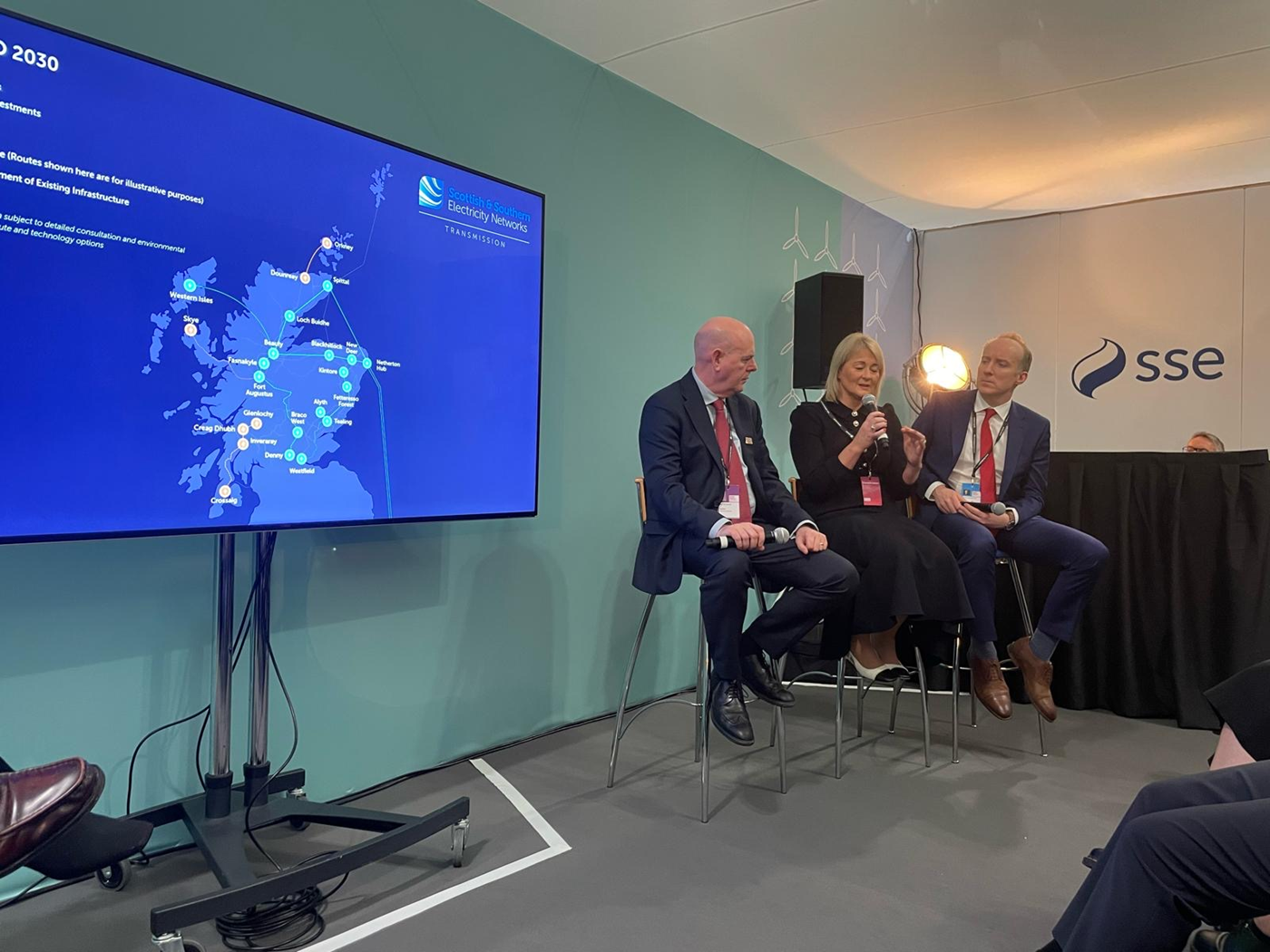Engagement vital in explaining benefits of critical net zero projects
A blog by Rob McDonald, SSEN Transmission Managing Director
I spent time at the Scottish Labour conference at the weekend, engaging with leading politicians and stakeholders on our work to deliver our Pathway to 2030 projects, which will be critical to unlocking the north of Scotland’s potential as a renewable energy powerhouse.
With a designated SSE pavillion organised by group colleagues, we had an excellent platform for engagement at this conference. Along with colleagues from across SSEN Transmission who were also involved in these discussions, I was pleased with the level of support and enthusiasm for the work we’re doing to deliver upgrades to the electricity network across the north of Scotland through our £20bn investment in grid infrastructure.
Labour have already outlined their Green Prosperity plan which aims to ensure the energy transition happens here in Scotland, with a big pledge to achieve 50,000 clean power jobs across the next decade by realising the full potential of Scotland’s renewable energy assets.
It bears repeating that there is no transition without transmission, and in meetings with Scottish Labour Leader Anas Sarwar and other politicians I explained the criticality of transmission to delivering Scottish Labour’s energy ambitions.
Already our plans offer huge economic opportunity to create highly skilled, green jobs at SSEN Transmission and through the supply chain, part of a package that will create billions in economic value including at least £100m in community benefit funding for those communities where our work takes place. We’ll also be playing our part in addressing the rural housing crisis in the north of Scotland through plans for the construction of 200 new homes.
Creating a positive legacy for communities which do not routinely see the benefits of investment is central to our plans, and I was glad to discuss this and other key features of our work at a panel discussion that took place at the conference, focused on the role of grid in unlocking local economies and leaving a legacy for communities.
Among the topics that were raised was the need for strong engagement with communities to ensure they are invested in our projects – which of course we are undertaking with our next round of public consultations starting later this month.
We have already shown we are listening to communities through the changes we have made to routes and infrastructure locations in direct response to community feedback. The next round of consultation will provide communities with their main opportunity to influence route alignments and associated infrastructure locations, ahead of potential options being presented for consultation later this year.
In other discussions I also advanced the need for a whole systems plan to better enable net zero by the target date of 2050, and reiterated our call for modest reform of the planning regime in Scotland for transmission infrastructure – which is critical to the delivery of a decarbonised power system by 2035 and net zero by 2050.
Without reform these targets will not be met, and we’re calling for decisions on projects to be able to be taken within 12 months to give us the best chance of delivering these targets on time.
Engaging directly with policymakers and other key stakeholders is a vital part of our work, and the discussions I have had with politicians of all parties in recent months have underlined the importance of helping people understand the challenges we face, while also presenting a positive vision of our work.
I look forward to continuing these discussions in the months and years to come, as we build a transmission network that delivers on net zero targets, as well as vital jobs and investment.
